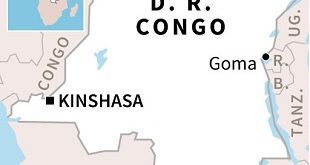
A narrative trapped between elite pseudo optimism and hard realities of citizens
By Elijah Kisembo
Africa is not one country. It is a collection of many countries. A good defence put forward when one writes a story about the continent that is deemed damaging and retrogressive by the political elites that have the power of counter media. They demand the continent not to be generalised. They remind everyone of the world full of catastrophes and bad stories. The problems of the world are not exclusive to Africa. That is true. The question is; who should tell the African story?
The story of the continent has two dominant narratives, that is, the narrative of the political elites, and that of the ordinary citizens. Unfortunately, the story of the ordinary citizens is a silent story, mainly highlighted if it is in the interests of the political elites. The elites with privilege of power tell an African story full of pseudo optimism that is always eroded with the realities of the day.
In the recent past, the story of the continent has been marked by enthusiastic pronouncements of “Africa is raising”. A story partly aimed at rehabilitating the political, socio and economic image of the continent. For example, on December 3, 2011, at the peak of the Africa is raising narrative that started in early 2000, the Economist published a story that summarised the hopeful continent: “Africa’s enthusiasm for technology is boosting growth. It has more than 600m mobile-phone users—more than America or Europe. Since roads are generally dreadful, advances in communications, with mobile banking and telephonic agro-info, have been a huge boon. Around a tenth of Africa’s land mass is covered by mobile-internet services—a higher proportion than in India. The health of many millions of Africans has also improved, thanks in part to the wider distribution of mosquito nets and the gradual easing of the ravages of HIV/AIDS. Skills are improving: productivity is growing by nearly 3% a year, compared with 2.3% in America. All this is happening partly because Africa is at last getting a taste of peace and decent government”.
This is a great narrative told about Africa. It can even be treasonous for one to think otherwise. It is a narrative of a hopeful continent. Defensible statistical figures back up the story of a rising continent. Intellectual machinery is lined-up to tell and defend the story of a rising continent.
However, a true and complete story is that story that ordinary citizens can relate to beyond the statistical figures. For example, according to the world employment outlook 2016 by the International Labour Organisation, 2016, in Northern Africa, the incidence of unemployment among youth in the region was expected to remain elevated at 29.3 per cent in 2016, representing the second highest rate across all regions. In Sub-Saharan Africa, the youth unemployment rate was expected to continue on its downward trajectory, which began in 2012, reaching 10.9 per cent in 2016. A youthful population is on a move: economic migrants. The continent is inhabitable for them. In some countries, the quality of life is worse than it was at independence. A sense of powerlessness is evident in conversations with ordinary citizens. There are not conversations of a rising continent. Famine still affects a number of countries. The challenges faced by the populations in South Sudan, Libya, Somalia, Eretria, Zimbabwe, Democratic Republic of Congo, Central African Republic, Mali, Chad, and Burundi among others make the story of a rising continent far from reach .
Optimism is good, but it should be anchored in truthfulness, realism and progressive engagement aimed at changing the bad stories on the continent about the continent. This story would be of good governance, democracy and citizen-centered leadership.
****
Elijah Kisembo is a social commentator
 The Independent Uganda: You get the Truth we Pay the Price
The Independent Uganda: You get the Truth we Pay the Price


